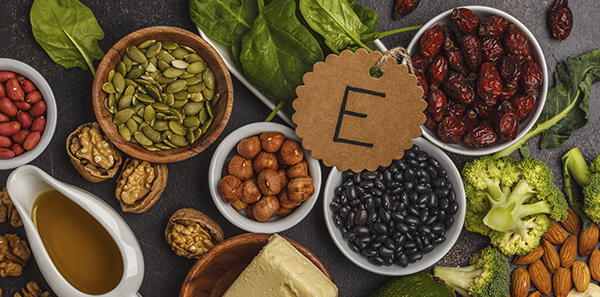
What is cholesterol?
Cholesterol is a fatty substance found in cells and is produced in small amounts all over the body, especially in the liver, where it is also stored and metabolised. There is also an exogenous source of cholesterol provided by diet, from foods derived from animals, especially those high in saturated fat, red meat, dairy products, egg yolk, seafood, etc.
How does cholesterol work in the body?
It plays a role in vital processes for the body, but an excess will cause problems, especially if it builds up in the bloodstream, causing what is known as atherosclerosis and leading to circulatory and cardiac problems (ischemic heart disease, chest angina or myocardial infarction), as well as problems in the brain (cerebrovascular accident – stroke) or lower limbs (thrombosis).
Cholesterol circulates between the liver and other tissues, but it is a substance that is poorly soluble in water and so needs to bind to certain proteins to circulate through the bloodstream. These proteins are called lipoproteins, in particular high-density lipoproteins (HDL) and low-density lipoproteins (LDL).
The difference between “bad cholesterol” and “good cholesterol”
LDL cholesterol, also called “bad cholesterol”, contributes to the formation of fatty deposits in the arteries, which, over time and added to other factors, can cause them to become narrowed and blocked. This means that the tissues that received their food and oxygen through the blood will suffer or even die (heart attack). Blood clots can also occur in the vascular system, especially in the lower limbs, with the formation of thrombosis.
Recommended LDL cholesterol levels vary based on the presence of other cardiovascular risk factors, such as high blood pressure, diabetes or smoking. The figure should not exceed 120 mg/dl and will decrease if there are risk factors.
HDL cholesterol, “good cholesterol” works by removing LDL cholesterol from the arteries and makes it easier for it to be carried to the liver, where it will be stored or metabolised. HDL cholesterol plays a fundamental role in the storage of LDL cholesterol, as it will prevent it from being deposited on the walls of blood vessels in the circulatory system. The figure should be higher than 35 mg/dl and the higher the better.
Recommendations
The best way to achieve good levels of HDL or “good” cholesterol is to follow a healthy, balanced diet, avoiding the consumption of saturated fats. The Mediterranean diet is a great ally in this process because of its abundance of fish, fruits, vegetables and legumes. Plus, doing aerobic exercise such as walking, running, cycling or swimming will help improve HDL levels.
In cases where diet and physical exercise are not enough, a doctor will have to prescribe drugs, which may involve side effects. Some of the most specialised and useful drugs are statins, which act in the liver by inhibiting substances that the liver needs in order to produce or metabolise cholesterol.












